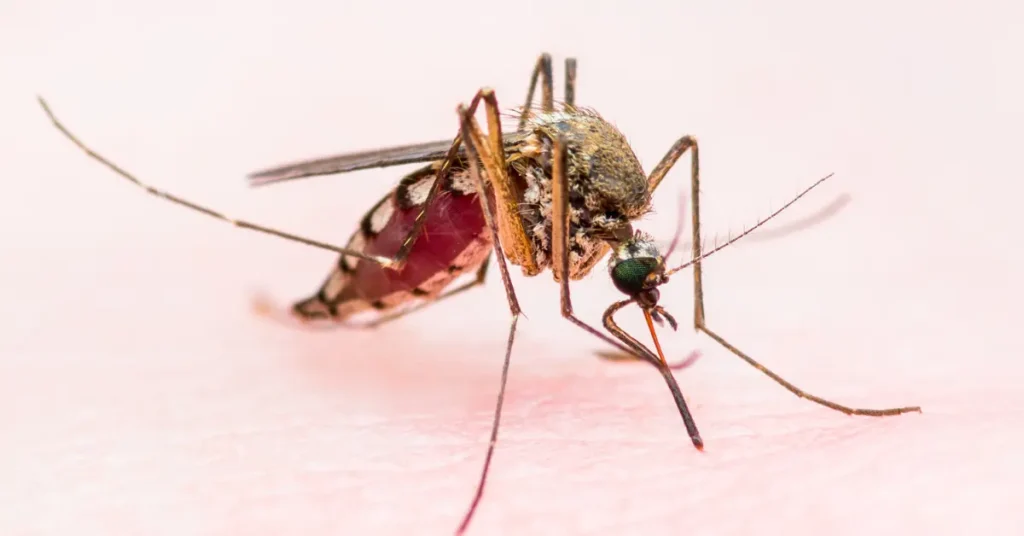In the wake of shifting global dynamics, the World Health Organization (W.H.O.) recently unveiled a stark reality: an alarming surge in malaria cases, surpassing the pre-Covid era, with an estimated 249 million instances recorded worldwide in the past year. This significant uptick of five million cases from 2021 has positioned malaria, particularly in children, as an enduring threat.
The Nexus of Climate Change and Malaria Resurgence:
The brunt of this surge has been shouldered by five nations – Pakistan, Nigeria, Uganda, Ethiopia, and Papua-New Guinea. Dr. Daniel Ngamije, spearheading the W.H.O. malaria program, points to climate change as a direct contributor, notably in three of these countries.
In Pakistan, the repercussions of massive flooding in July 2022 lingered, leaving over a third of the country submerged and displacing 33 million individuals. A subsequent mosquito explosion resulted in 3.1 million confirmed malaria cases, a drastic spike from the previous year. Dr. Muhammad Mukhtar, director of Pakistan’s national malaria control program, underscores the challenges of combatting the disease in the aftermath of such calamities.
Challenges Beyond Mosquito Habitats:
While the floodwaters recede, the malaria parasite persists in communities with diminished immunity. Despite distributing over seven million bed nets, the displaced population faces challenges in utilizing them effectively. Insecticide spraying and mass administration of anti-malarial drugs become vital strategies, yet the road to normalcy in Pakistan seems prolonged.
Weather emergencies also ravaged health facilities, compounding the issue. In areas where malaria proliferated due to climatic shifts, the damage extended beyond new mosquito habitats. In Pakistan alone, 2,200 health facilities were damaged, leaving millions without access to treatment.
Global Malaria Scenario:
The global malaria landscape witnessed stability in death tolls between 2021 and 2022, yet the estimated 608,000 deaths exceeded the 2019 total of 576,000. The downward trend in deaths from 2000 to 2015 faced a setback due to drug and insecticide resistance, funding stagnation, and changes in mosquito behavior. The Covid pandemic further disrupted health services and supply chains, impeding progress.
Regional Resurgences and Climatic Influences:
Ethiopia and Uganda experienced notable rises in malaria cases (1.3 million and 600,000, respectively) attributed partly to climate change. Highland areas, once unsuitable for malaria transmission, reported cases due to climatic shifts. In Ethiopia, civil conflicts displaced millions, rendering them susceptible to malaria.
Nigeria, grappling with extreme flooding, saw an additional 1.3 million cases despite maintaining a stable infection rate. Climate change, displacements from droughts and storms, and disruptions in supply chains exacerbate malaria vulnerabilities.
Hope Amidst Challenges:
The report did offer some positive notes. Azerbaijan, Belize, and Tajikistan achieved W.H.O. certification as malaria-free nations in 2022. Noteworthy strides include the vaccination of over two million children in Ghana, Kenya, and Malawi with a new malaria vaccine. The introduction of a second vaccine and multi-chemical-treated bed nets provides optimism for the coming years.
Dr. Ngamije expresses hope for a turnaround in 2023, buoyed by increased vaccine supply and innovations countering insecticide resistance. The resilience of communities, coupled with global initiatives, is poised to propel progress against malaria, steering the world towards a healthier and more secure future.
As we navigate these challenges, it’s imperative to recognize that combating malaria necessitates a multi-faceted approach, including climate resilience, robust health infrastructure, and global collaboration. The journey to a malaria-free world continues, spurred by collective efforts and unwavering determination.
In the face of adversity, united global actions offer a beacon of hope, striving to redefine the narrative of malaria and build a healthier, more resilient future for all.



